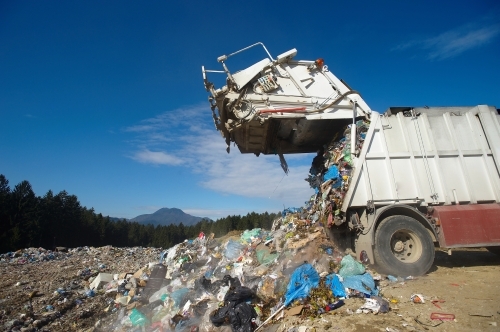Written by Nera Kuljanic with Sarah McCormack

As the EU and its Member States are seeking ways to reduce and better manage their waste, now is a good time to examine the current state of play and future direction of waste management in Europe. On 15 June 2016, the European Parliament’s Science and Technology Options Assessment (STOA) Panel hosted a workshop entitled ‘Waste Management, a key player in the transition to a circular economy’. The event was chaired by MEP and STOA First Vice Chair, Eva Kaili.
MEP Kaili opened the workshop by highlighting how, on average, 42% of waste in the EU goes to landfill, and drawing attention to incineration as a potential barrier to the recirculation of materials in waste. MEP Kaili stressed that, to reach the target of recycling 65% of municipal solid waste by 2030, as set out in the European Commission’s Circular Economy Package, energy recovery should be limited to non-recyclable waste. MEP Kaili pointed out that there are countries and sectors on the right track to reach the targets set for 2030. The key challenge was how to disseminate their good practices so that other countries and sectors could benefit.
[tweet https://twitter.com/EuCheMS/status/743033937811931140 align=’center’ width=’300′]
According to Johan Van Dessel from the Belgian Building Research Institute (BBRI), more than 90% of waste produced by the Belgian construction and demolition sector is recycled. How was added value created from construction industry materials? The key incentive to their success is that Belgium is a densely built country with little free space: dumpsite bans were quickly introduced and pilot projects were used to demonstrate the quality of recycled aggregates, coupled with well thought out policy frameworks. However, challenges in the sector do persist, and include growing volumes of waste; uneven quality of materials due to contamination; the availability of technologies enabling more efficient recycling; and value creation in competitive markets.
Not all recycling necessarily represents an added value, for Ton Bastein from the Netherlands Organisation for Applied Scientific Research (TNO), who explained how the Dutch biowaste sector is assessing circular value for biobased waste. The Netherlands seeks to identify processes leading to an increased value for recycled materials and the best opportunities for using them.
Marie Münster, a researcher in energy systems from the Technical University of Denmark, highlighted the benefits of thermal gasification, anaerobic digestion and incineration in the energy sector. She explained that there would always be amounts of waste that could not be recycled, in which case we should look towards energy recovery.
Speaking about the problem of landfilling, Nathalie Buijs, representing the European Federation of Waste Management (FEAD), said that EU leadership on binding landfill diversion targets at EU level and close monitoring of performance were crucial to achieve the targets of the Landfilling Directive. In their view, only waste for which there was no economically practicable or environmentally sound recovery or recycling operations should be landfilled. Measures such as eco-labelling rules, minimum green procurement requirements and reducing VAT for secondary raw materials are also needed to drive the diversion from landfilling, as well as the exchange of best practices between the frontrunners and those lagging behind.
[tweet https://twitter.com/doudou_electra/status/743095945122975744 align=’center’ width=’300′]
There are countries with high recycling rates, but also those with high rates of waste generation per capita. How can we put policies focusing on waste prevention in place? Ferran Rosa from Zero Waste Europe spoke in favour of introducing a cap on residual waste and EU-wide objectives and targets on food waste, marine litter and waste generation, as well as on toxic and non-recyclable items.
[tweet https://twitter.com/MtzGra/status/743094069627375616 align=’center’ width=’300′]
Vanya Veras, Secretary General of Municipal Waste Europe, explained that the organisation is committed to sustainable waste management and promotes resource efficiency and a circular economy. Calling for limits to landfilling for all types of waste, not just municipal waste, which accounts only for a small share of total waste, Vanya Veras further stressed the importance of communication with the public in carrying out effective waste management projects.
If you missed the event, watch the video and presentations here.








Be the first to write a comment.